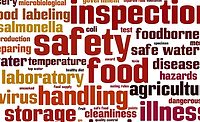In Canada, reported cases of foodborne illness caused by certain pathogens decreased during the COVID-19 pandemic, according to a recent study. Specifically, in 2020 compared with the previous 5-year period, decreases in the number of reported cases were noted for Salmonella, Shigella, Escherichia coli O157, and non-O157 Shiga toxin-producing E. coli (STEC).
However, the reported number of cases of Listeria monocytogenes in 2020 remained similar to that of the previous 5-year period.
The study collected data from the Canadian National Enteric Surveillance Program (NESP), which reports the number of key laboratory-confirmed enteric pathogens in Canada on a weekly basis. At the federal level, whole genome sequencing (WGS) data from PulseNet Canada are reviewed by epidemiologists in outbreak investigations to determine the vehicle of infection, which is information also considered in the study.
Compared with the average number of cases reported by the provincial public health laboratories in the previous 5 years (9,053), there was a 33 percent reduction in the total number of cases of enteric pathogens reported nationally in 2020 (6,054), which saw the lowest total count in 23 years of monitoring enteric illness at the national level. Similar declines in reported enteric illness incidence in 2020 were observed in other countries, including the U.S., which observed a 26 percent decrease in reported enteric illness incidence in 2020.
Possible reasons for the decline in reported rates of enteric illness include changes in health care seeking behavior, changes in behaviors related to exposure, and decreases in international travel during the COVID-19 pandemic.




